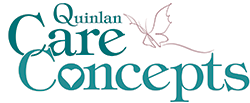Press Release
FOR IMMEDIATE RELEASE:
DATE: December 1, 2011
CONTACT: Dr. Roxanne Debski- Seigel
Karen Ann Quinlan Memorial Foundation
Offices in Newton & Phillipsburg, NJ & Milford PA.
PHONE: 973-383-0115 toll free 800-882-1117 FAX 973-383-6889
EMAIL: rdebski-seigel@karenannquinlanhospice.org
Website: www.karenannquinlanhospice.org
Joseph T. Quinlan Bereavement Counselors achieve Instructor status by National Board for Certified Counselors
Newton-December 1, 2011-The National Board for Certified Counselors has approved provider status to three counselors of the Joseph T. Quinlan Bereavement Center. This status assures the classes they offer have undergone rigorous review and have been found to meet NBCC continuing education requirements. Currently, there are over 43,000 National Certified Counselors (NCCs) who are in need of fulfilling their requirement to complete at least 100 hours of approved continuing education within a five-year period. As approved providers, counselors in need of continuing educational credits (CEUs) will be able to attain some of their credits by attending the programs as offered by the bereavement center; dates, times, and places will be announced in 2012. NBCC encourages NCCs to take advantage of the activities made available by approved providers.
The CEU programs will be taught by Diana Sebzda, Joseph T. Quinlan Bereavement Center Director with NBCC approved co-instructors Jennifer Smentana and Lorri Opitz assisting with bereavement facilitator training and the healing in the classroom workshop. Most of the classes will be taught at the bereavement center located at 61 Spring St. in Newton, but can be offered at other locations on request. The classes range from 1 hour to as much as two day training sessions with credits earned ranging from .1 ceu’s to 1.2 ceu’s.
The following programs qualify and have been approved by the NBCC.
Compassion Fatigue:
Includes definitions given of Compassion Fatigue, Vicarious Trauma and Secondary Traumatic Stress Disorder. Discuss “at risk” professions, symptoms of compassion fatigue, self-tests that are available for assessment, importance of self-care, burnout and prevention strategies.
The learning objectives will be to identify professions that fall in the “at risk” categories; identify symptoms in at least three key areas; become familiar with at least one self-assessment protocol; identify meaningful self-care strategies.
Bereavement Facilitator Training:
Program will discuss grief education, grief process, what is appropriate in grief, societal expectations in grief, facilitator self-awareness, multi-cultural diversity and perspectives, organization and implementation of a self-help bereavement support group. Learning objectives will be to learn appropriate expectations in grief; learn what appropriate expressions in grief are; become a self-aware and reflective facilitator; learn how to organize and implement a self-help bereavement support group; become aware of group dynamics; learn how to run an effective self-help bereavement support group.
Healing in the Classroom Workshop:
Discussion to include developmental theories for children in grief, general grief education, interventions that can be implemented to support a grieving student, components and implementation of a support group within the school setting and creating crisis management plans. Learning objectives will include learn to recognize grief in children; learn how to normalize grief for a student; learn how to support a grieving student; learn how to address death and loss in a school setting; learn how to create and implement a peer support group.
For more information and the availability of these classes, please contact the Joseph T. Quinlan Bereavement Center in Newton at 973-940-0413, or check with our website, www.karenannquinlanhospice.orgwww.karenannquinlanhospice.org.
###
